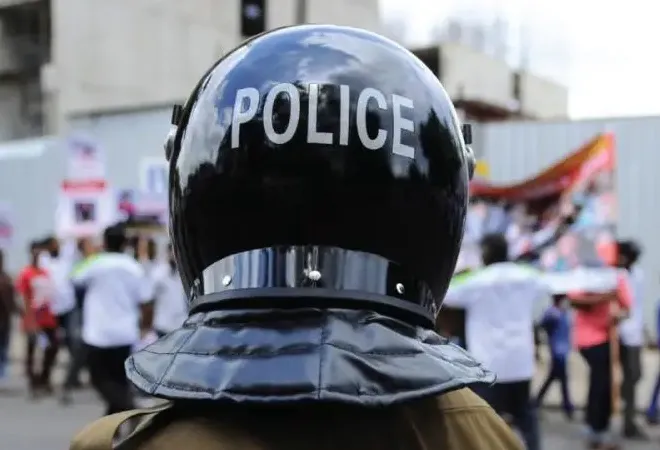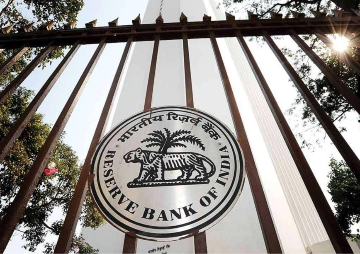
Any discourse on power devolution for the Tamil community in Sri Lanka ends up in a deadlock, invariably on the question of ‘police powers’ for the provinces. It has already been guaranteed under the India-facilitated Thirteenth Amendment to the nation’s Constitution, which was incorporated in 1987 but has not been enforced. The sincerity of purpose and honesty for mutual accommodation has been missing under successive governments. It is also true for the Tamil leadership, first under slain LTTE leader Velupillai Prabhakaran, and later under the moderate leader, R Sampanthan.
First, the Sinahala reservations, which is tantamount to non-compliance by successive governments and Presidents since the late J R Jayewardene (JRJ), who was the author of 13-A, is born out of ignorance. JRJ was possibly convinced of the relevance and usefulness of ‘Indian model’ for Sri Lanka but failed to educate his fellow-politicians in the matter, with the result, perverse interpretations have been doing the rounds ever since. With the result, even those presidents that favour police powers for the provinces, which too were created in 1987, under a separate Provincial Council Act, have not understood the concepts as well as they should have.
JRJ was possibly convinced of the relevance and usefulness of ‘Indian model’ for Sri Lanka but failed to educate his fellow-politicians in the matter, with the result, perverse interpretations have been doing the rounds ever since.
Whether they favour police powers under 13A, or oppose it, either in total or in parts, have little understanding of the same. Given the times they lived in, the Sinhala polity in general and the Sri Lankan government authorities in particular seemed to have shied away from taking a closer look at the enforcement and enjoyment of police powers in Indian States (translating as Provinces in Sri Lanka). The 13A as a whole is a near-replicate of power-sharing between the Union and the States under the Indian constitutional scheme, which has had a successful run.
Final Arbiter
Broadly speaking, 13A, among other things, provides for the
setting up of provincial police forces with a Deputy Inspector-General (DIG) in all nine provinces, created under the law, and reporting to the elected chief minister. At the top of the pyramid is the Inspector-General of Police (IGP), who is the head of the nation’s police forces. He would appoint DIG’s in consultation with the chief minister and when they have a difference of opinion, the matter goes to the National Police Commission (NPC), which is the final arbiter.
Here, the majoritarian critics continue to overlook the fact that if there is a difference of opinion between the IGP and a provincial chief minister, the NPC decides and its decision is binding. This apart, at present, the IGP, who is the national police chief, is chosen by the government at the Centre, just now by the President, who invariably also heads his party. If the president, acting also as party chief, can be expected to act responsibly and with larger national interests in mind, provincial chief ministers should not be denied to be any less responsible.
The critics need to remember that the 13A solution was offered only to try and mainstream the LTTE, which failed to produce the desired results. The moderate Tamil political leadership, now in the defunct LTTE’s place, has repeatedly sworn by a united and even unified nation, though under a federal scheme – they have eschewed the LTTE’s separatism, wholly. If the post-insurgency JVP in the Sinhala South could be trusted to ‘behave’ without returning to their insurgent past, so should the Tamil moderates from whose midst militant terrorists of the LTTE kind have been eliminated.
The moderate Tamil political leadership, now in the defunct LTTE’s place, has repeatedly sworn by a united and even unified nation, though under a federal scheme – they have eschewed the LTTE’s separatism, wholly.
The critics also forget that in a democracy, as prevailing in Sri Lanka, the Supreme Court is the final arbiter, and political parties and leaders, independent of their ideological and electoral differences, have always deferred to the directives of the Supreme Court. In a much larger issue, then-President Maithripala Sirisena obeyed the Supreme Court’s order of December 2018 and restored Ranil Wickremesinghe as Prime Minister, after unilaterally replacing him with Mahinda Rajapaksa. The more recent episode too involves Sirisena, apart from a host of officials, both police and civilians. In January, this year, they obeyed without contest, political or otherwise, when the
Supreme Court directed them to pay hefty compensations, and in their individual capacity, for the victims of the Easter serial blasts in 2019.
The main criticism
In this case, the mainline majority/majoritarian criticism is that with police powers in the hands of provincial chief ministers, they could misuse and abuse those powers
viz issues of national security. To begin with, their insinuation that a section of the nation’s police force, say, in the Tamil areas, would turn anti-national and wage or join a war against the nation, is unacceptable. They need to remember how in 1990,
at least 600 policemen, many of them Tamils, defended their post to the last man when the LTTE attacked a police station in eastern Batticaloa.
The critics refuse to acknowledge that if ever push comes to shove, the nation’s armed forces are under the command of the Centre, especially the President, who is also their Supreme Commander, and are capable of tackling any situation. The Sri Lankan armed forces are of a superior quality, and have proved their mettle and methods in the decisive and conclusive war against the LTTE, both in conventional engagement and terrorist attacks.
If the argument is that the nation need not risk such a situation is equally ill-founded. This is because if there is a rebellion, whether of the Tamil or the Sinhala kind—the latter of the erstwhile JVP militancy kind—the provincial police joining the protestors would not make a difference if the entire operation is as massive as it was in the past instances.
Where the Tamils get it wrong
It is not as if the Tamils are without flaws in their own constructs when they argue their case for police powers. Traditionally, their concern is only about Sinhala policemen alone being recruited and posted in Tamil areas, including the capital Colombo. In such a scenario, ordinary citizens especially find it difficult to communicate with each other as both are invariably mono-linguistic. Now, no one is talking about it anymore, not even the larger idea of police powers as enshrined in 13A.
The Sri Lankan armed forces are of a superior quality, and have proved their mettle and methods in the decisive and conclusive war against the LTTE, both in conventional engagement and terrorist attacks.
Instead, theirs now is a vague perception,
which they call ‘federalism’. However, some of their demands on power devolution make it look at what should pass for a ‘confederate’ which is a different animal altogether. There is also no common ground among various Tamil parties and their leaders about what would constitute ‘Police powers for the provinces’ or even federalism, wherein police powers are only one of the multiple elements.
The fact is that Tamil leaders in Sri Lanka are alive to the functioning of federalism and police powers there. During the long war years, many of them spent years in India, especially Tamil Nadu, or in other countries where the spirit of federalism was in full flow Hence, they cannot claim that they did not know how it worked in India or in other democracies in the West. To the extent that a substantial section of the southern Sinhala polity, possibly other than President Jayewardene, did not approve of India’s involvement and through the Indo-Sri Lanka Accord, signed with Indian Prime Minister Rajiv Gandhi in 1987, they also felt strongly against seeking to understand the Indian scheme. The 13A is a product of the Accord, and its spirit has worked successfully in a country much larger than Sri Lanka, and much more diverse than Sri Lanka, in terms of language, culture and, say, ethnicity, not to overlook the urban-rural and rich-poor divides—which are common to both countries.
With the result, they stick to the forgettable Tamil Nadu example of 2001, when Chief Minister
Jayalalithaa ordered the arrest of two union ministers from the state, namely, the late Murasoli Maran and T R Baalu, who were members of Prime Minister Atal Bihari Vajpayee’s government, and argued that this could happen in Sri Lanka, too, if police powers were granted to their provinces. Again, they refuse to acknowledge how the Indian scheme proved its worth, when a brief public
statement from Union Law Minister, the late Arun Jaitley, was enough for the state government to free the two—when their leader, the late
M Karunanidhi was freed again under pressure from the Centre, following a mid-night arrest on allegations of corruption when he was in power.
All of it only went on to show that police powers as per the Indian scheme, and adopted in 13A is neither diarchic nor dysfunctional, as is being made out to be. Instead, it is a vibrant arrangement, with the dynamism of democracy working full throttle and ensuring that neither the rider nor the mount is derailed – now, or ever.
The views expressed above belong to the author(s). ORF research and analyses now available on Telegram! Click here to access our curated content — blogs, longforms and interviews.



 Any discourse on power devolution for the Tamil community in Sri Lanka ends up in a deadlock, invariably on the question of ‘police powers’ for the provinces. It has already been guaranteed under the India-facilitated Thirteenth Amendment to the nation’s Constitution, which was incorporated in 1987 but has not been enforced. The sincerity of purpose and honesty for mutual accommodation has been missing under successive governments. It is also true for the Tamil leadership, first under slain LTTE leader Velupillai Prabhakaran, and later under the moderate leader, R Sampanthan.
First, the Sinahala reservations, which is tantamount to non-compliance by successive governments and Presidents since the late J R Jayewardene (JRJ), who was the author of 13-A, is born out of ignorance. JRJ was possibly convinced of the relevance and usefulness of ‘Indian model’ for Sri Lanka but failed to educate his fellow-politicians in the matter, with the result, perverse interpretations have been doing the rounds ever since. With the result, even those presidents that favour police powers for the provinces, which too were created in 1987, under a separate Provincial Council Act, have not understood the concepts as well as they should have.
Any discourse on power devolution for the Tamil community in Sri Lanka ends up in a deadlock, invariably on the question of ‘police powers’ for the provinces. It has already been guaranteed under the India-facilitated Thirteenth Amendment to the nation’s Constitution, which was incorporated in 1987 but has not been enforced. The sincerity of purpose and honesty for mutual accommodation has been missing under successive governments. It is also true for the Tamil leadership, first under slain LTTE leader Velupillai Prabhakaran, and later under the moderate leader, R Sampanthan.
First, the Sinahala reservations, which is tantamount to non-compliance by successive governments and Presidents since the late J R Jayewardene (JRJ), who was the author of 13-A, is born out of ignorance. JRJ was possibly convinced of the relevance and usefulness of ‘Indian model’ for Sri Lanka but failed to educate his fellow-politicians in the matter, with the result, perverse interpretations have been doing the rounds ever since. With the result, even those presidents that favour police powers for the provinces, which too were created in 1987, under a separate Provincial Council Act, have not understood the concepts as well as they should have.
 PREV
PREV


